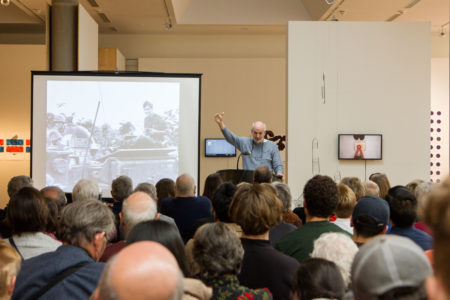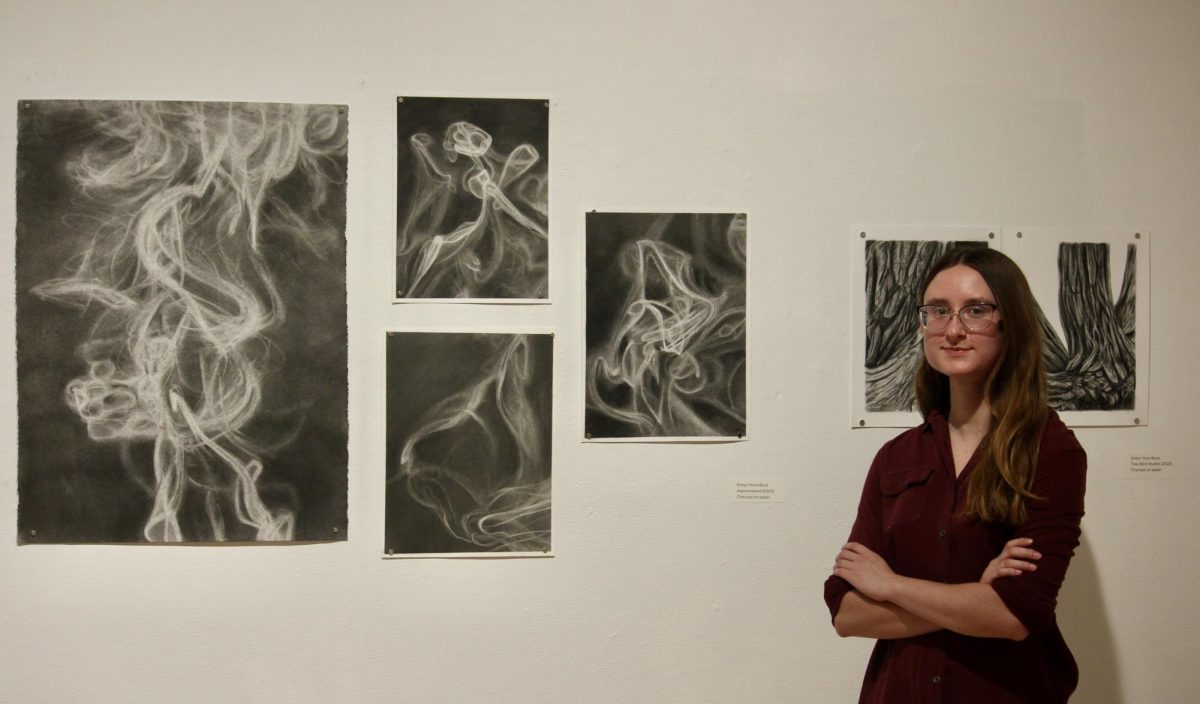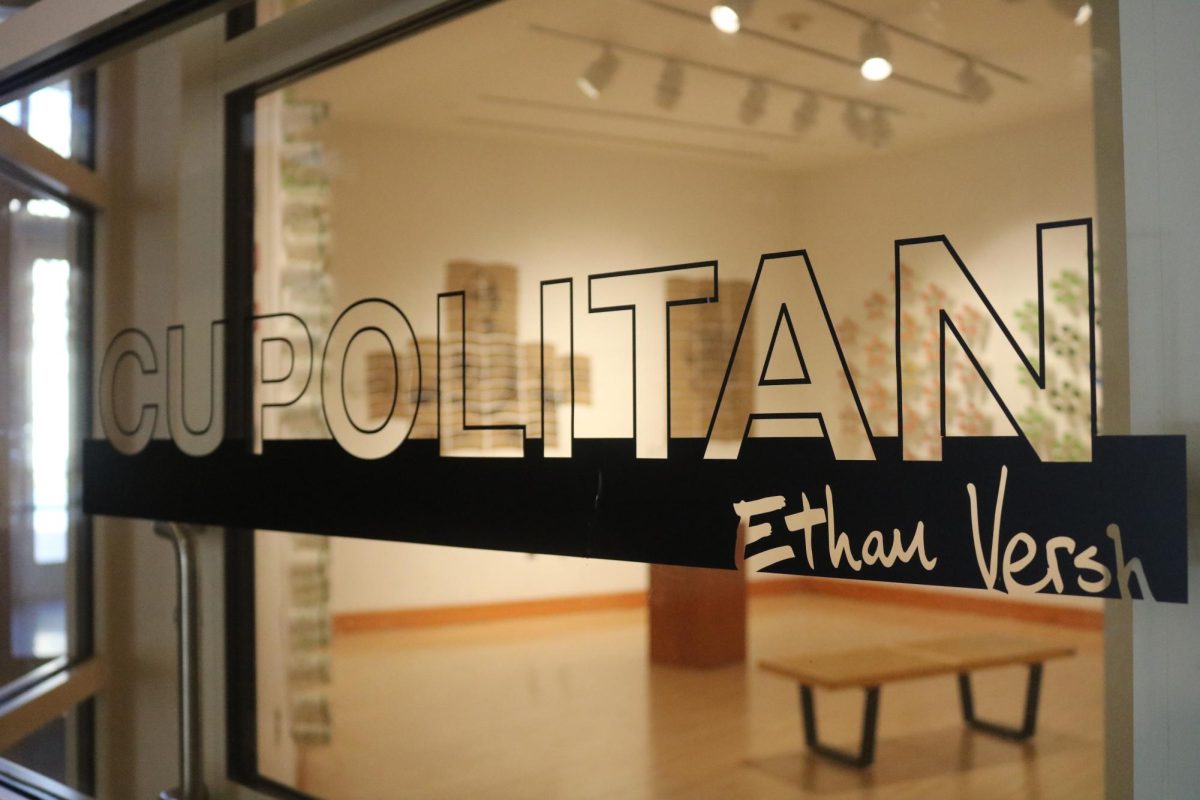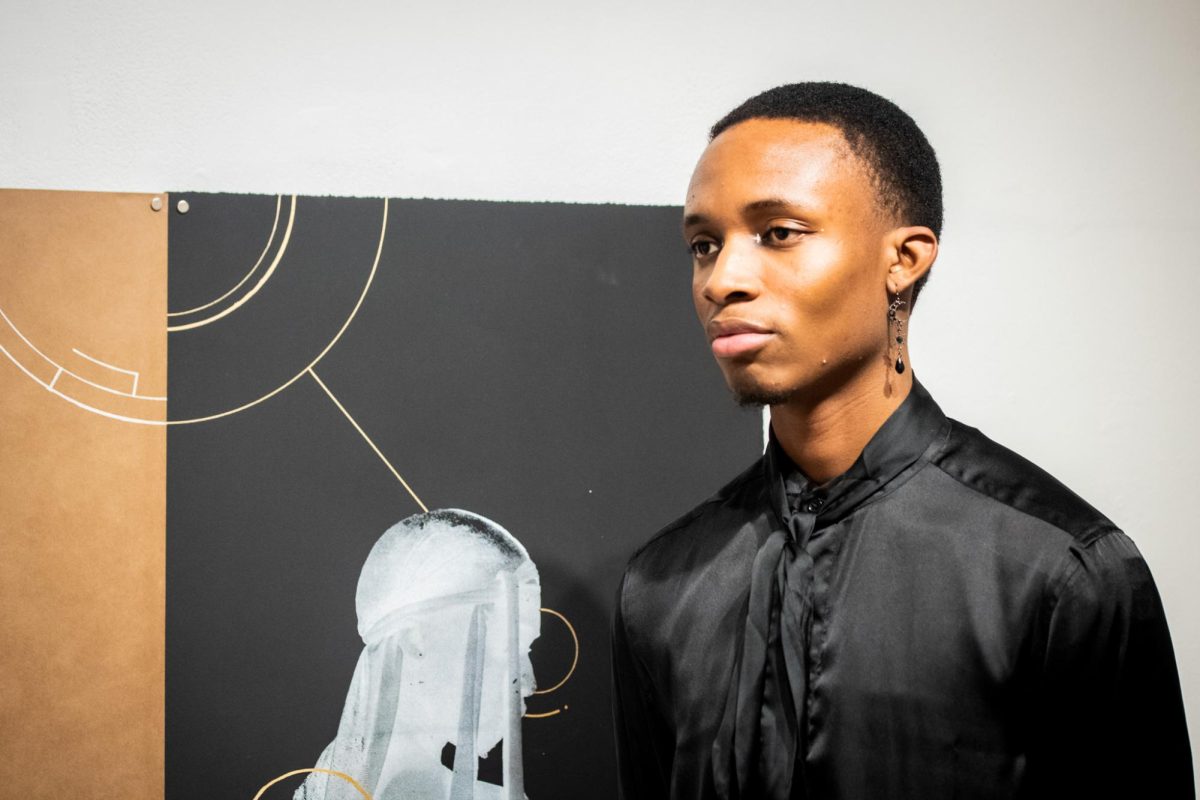By Steve Yang

yangstev17@grinnell.edu
Upon entering Faulconer Gallery on Thursday afternoon for a talk delivered by Robert Hodierne ’69 titled, “Young and Hungry: A Freelance Photographer in Vietnam,” a soundtrack with deep personal meaning to Hodierne could be heard playing in the background. For Hodierne, who doesn’t consider himself a journalist first and foremost, all of America’s wars came with soundtracks, and Vietnam was the “first TV and rock-and-roll war.” He described his talk as a “personal memoir” of his life experiences before a standing-room only crowd, which included- numerous Vietnam veterans.
In 1966, Hodierne flew to Vietnam on a one-way ticket to Saigon, with a quick stopover in Hong Kong to purchase camera equipment. He was using money intended for a year at Grinnell, and became the youngest fully accredited foreign journalist to cover the war on his second day in the country for United Press International (UPI). In 1969, Hodierne returned to Vietnam as an enlisted infantryman, and worked for the “Pacific Stars and Stripes.”
In the years since, he has provided coverage of wars in Korea, Iraq and Afghanistan, and currently teaches journalism at the University of Richmond. In terms of the wars and the soldiers he documented, he described his attitude as one of “boundless respect for these young men,” but disdain for the wars they fought in.
“I hate those wars, but I love those guys,” Hodierne explained.
Hodierne recalled how in the ’60s, there was nothing cooler than being a photographer and described his experiences to fellow S&B editors of photographing the Selma riots, where they manufactured bogus “Midwest News Agency” press cards to “bamboozle police down in Alabama.” As he sat in front of Martin Luther King, Jr. in Dallas, Hodierne had the chance to meet the acclaimed photographer Flip Schulke, whose photo of the event would be on the next cover of Life Magazine.
“At one point in that encounter, Flip whispered…words that have stayed with me to this day, Hodierne said with a smile. “Kid, get your damn microphone out of my picture.”
After responding to a photographer’s ad, Hodierne took the money intended for his final year at Grinnell and bought a ticket to Saigon, noting how he was “young and hungry, and wanted to be rich and famous” as a photographer covering the Vietnam conflict. Having only had photos published in the Scarlet and Black, Hodierne lost his “very thin” portfolio but learned quickly by documenting the Buddhist riots in Saigon. Beyond photography, however, Hodierne learned that there are unique circumstances to war photography, like tear gas.
“Initially, I thought that you could overcome the effects of tear gas by force of will,” Hodierne said. “I had the opportunity to contemplate the folly of that as I sat on the curb barfing my guts out.”
He soon received an all-important press credential, which means that one can go anywhere “you had the nerve to go.” The press credential also meant that he had a courtesy rank of field-rank officer, which meant that the college dropout was being treated like a major. During this time, Hodierne wrote to his fellow editors at The S&B that, “All my previous expectations about life here was wrong. …Nothing I read prepared me for this place. People try to understand it in terms of US standards, which simply do not apply.”
Hodierne described travelling with medical evacuation helicopters and an especially embarrassing incident on a humvee convoy, where an improperly-secured artillery round on the side of his vehicle exploded, throwing him off and splattering shrapnel into his arm.
“My left arm and hand were peppered with shrapnel, the arm was just covered in blood. They called an emergency medevac for me … and this helicopter comes screaming in, with guys jumping out with stretchers,” Hodierne said. “They were quite puzzled that I was walking, but they raced me back to the hospital. The entire hospital staff was lining the sidewalk. Apparently, the word was then that … I was the … critically-wounded head of the committee of armed services.”
Upon arrival at the hospital, the doctor treating Hodierne looked him up and down and said, “What do you want me to do, kid, kiss it and make it well?” However, Hodierne added that the hospital “got their revenge by making me spend the night…the guy in the bunk next to me died in the middle of the night.”
After recounting numerous other stories of his time in Vietnam, which included spending time with a highly-decorated sergeant, photographing one of the bloodiest battles of the war on Hill 881 and having a press colonel call his words “treason,” Hodierne explained that his fascination with his subjects arose when he “fell in love with the grunts” who had the “same dark, cynical sense of humor” that he did.
After taking various questions from the crowd. Hodierne concluded that he is proud of how the modern progressive left can hate the war, but still support those who fight it, like many students at Grinnell have done.
“I hope they never have to experience what these young men experienced but I want them to think about it,” Hodierne said. “I stand by those words.”

























































